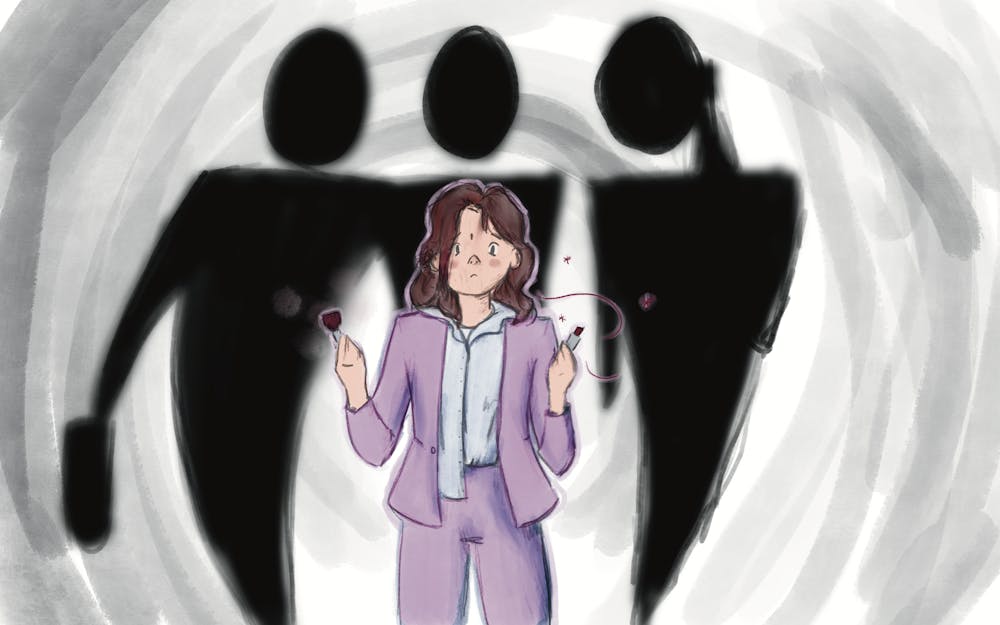“If you’re young and you’re pretty, you do not want to look too attractive at work,” proclaimed a woman on TikTok with a backdrop of notes on specific tips that she believes will help women be treated with respect in the office. She advises against “over-dressing,” wearing stiletto heels or wearing a full-face of makeup in addition to telling women to “have some imperfections”. Her video has nearly 150,000 likes.
Her first reason for making this argument is that appearing too beautiful at work will make older or less attractive female colleagues feel threatened by your presence and dislike you. I find this to be an entirely misguided point, and while it can be true, women do not automatically always feel in competition for male attention with each other. When it unfortunately is the case, it is the result of a patriarchal societal structure in which we are taught to value men’s opinions and feelings over women’s. Regardless, other women should not feel responsible for handling the jealous feelings of another that are only a product of internalized misogyny.
She additionally explains that “men are visual creatures.” This statement is deeply harmful and misleading for so many reasons, but is sadly a narrative that has long been pushed by the patriarchy. Men are not some sort of less human species than women that must be referred to as “creatures.” They are, or should be, civilized members of society who are more than capable of meeting the same social standards as women.
There is no biological difference that makes men inherently more visual than women, and in fact, several studies have disproved the idea that they are more visually stimulated in the first place. Maybe this narrative is so pervasive because men are simply taught from birth that they are allowed to look, and that their look carries power — just take the prevalence of catcalling, for example.
[Related: COLUMN: On the clock: How I love being a woman]
Further, the creator of this video states that men have trouble understanding that a woman can simultaneously be beautiful and smart, encouraging women to “downplay your beauty to let your intellect shine.”
But not only is there pressure to downplay your attractiveness, there are a plethora of other ways that the patriarchy polices women’s appearance in the office. It cannot be ignored that issues like this one tend to disproportionately affect women who are further marginalized by other aspects of their identity. For years, racist beauty and physical presentation ideals in the workplace have manifested in the perception of Black women’s hair as being unprofessional.
Sure, the creator of the video actually is correct that women lose out on valuable career opportunities and growth because of men’s reactions to their appearance or some women envying others who are younger or more attractive than them. What she misses in trying to advise other young women against appearing too attractive is that this problem is not one with an individual solution, nor is it the fault or responsibility of women.
I will never feel gratified standing at the top of my career ladder if, to do that, I had to meticulously curate my physical appearance to be the perfect balance of good-looking but not too provocative, beautiful but not seductive, easy on the eyes but not asking for it.
[Related: OPINION: In defense of the evil girl boss]
Women can support, uplift and stand by each other, especially in the workplace. That can start by not advising each other to cater to mythical, misogynistic ideas of self-presentation. Men are not wild animals with uncontrollable urges. We can hold them to the standard of being functioning societal members and viewing all women, regardless of appearance, as deserving of respect.
Leila Faraday (she/her) is a sophomore studying policy analysis with minors in geography and urban planning.






